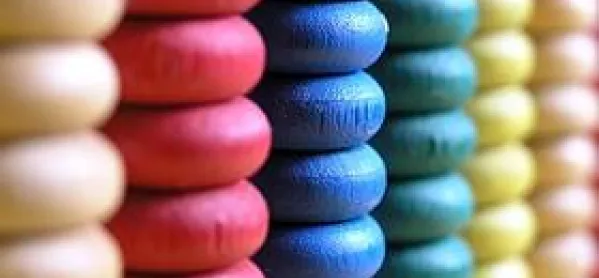Trainees weak in maths

Trainee primary teachers are “unconscious of their own incompetence” in maths, according to a senior lecturer in mathematics education and former maths teacher. Some even believe it is not important to be good at maths.
Rather than being able to rely on a sound knowledge base, teacher educators are increasingly having to teach the content as well as how to teach it, said Sheila Henderson of Dundee University. Yet there was little time during teacher training to make up for this “deficit in knowledge”, she argued.
The university is now turning its attention to literacy, which it believes poses a similar headache for teacher education. In an article in this week’s TESS, Graham Donaldson, who is carrying out the review of teacher education, confirms that “perceived issues” about literacy and numeracy are among the key issues he has identified.
Previous research by Dr Henderson revealed that two-thirds of students entering primary teacher training lacked the basic maths skills required to teach the subject.
This led to demands for tougher course entry requirements. The General Teaching Council for Scotland is believed to have considered whether aspiring teachers should have a Higher in maths, rather than a Standard grade Credit.
However, Dr Henderson suggests this would not solve the problem. Further research she carried out involving 270 students concluded that trainee primary teachers with Higher maths were less likely to do well when tested on primary maths than those with a Standard grade Credit.
Dr Henderson found that 87 per cent of students with Higher maths achieved less than 80 per cent in a test on the upper primary curriculum, while just 73 per cent of Standard grade students scored less than 80 per cent.
“One of the difficulties is that when they go to secondary, they leave topics like time and money behind - the kind of things a primary teacher is going to teach,” said Dr Henderson. “Instead, they start doing things like quadratic equations.”
In a bid to tackle poor performance in maths, Dundee University introduced an online maths assessment, consisting of 28 randomly-generated questions at levels E and F of the 5-14 curriculum. Postgraduate primary students sit the test and BEd students take it every year.
“We hope this will keep their competence going,” said Dr Henderson, who was speaking at the eAssessment Scotland 2010 conference in Dundee last week.
The trainee teachers had to achieve at least 80 per cent, but they are allowed to sit the test as many times as they like over a number of months until they reach that score.
Initially, the university tried running remedial maths classes, but the students who turned up were those who did not need help, said Dr Henderson.
She added: “Others are unconscious of their own incompetence. They have a good Standard grade and some have a Higher, which makes them think they have mathematical ability.
“Through e-technology, we are trying to get them to realise there’s an issue and we are trying to get them to take responsibility as professionals. All the research evidence is that if the teacher does not know the subject inside out, he or she is not going to be able to teach it.”
When students engaged with the university’s online test, Dr Henderson’s research showed their confidence and competence in maths could improve. However, not all of the students did.
One group of students was determined to get the best possible result. But others proved less focused: “Because I’m not great at maths, the less I have to do and the better for me”, commented one. “So when I reached the level, I thought that was enough.”
Dr Henderson continued: “Two thirds of students were doing fine, but one third did not engage. They did the test, hit the threshold and stopped - even though they’d been told that was the minimum requirement.”
The research also revealed that far from all the students believed it was important to be good at maths in order to teach it. One student said: “I think not being that good at it sometimes makes you teach it better”.
Another even suggested that any knowledge she lacked could be augmented by the classroom assistant. “The beauty of support assistants is that most of the ones I’ve worked with have been older than me, so I can just say to them `how do you do this?’”.
Dundee University plans on introducing a similar e-test focusing on students’ literacy.
emma.seith@tes.co.uk
Keep reading for just £1 per month
You've reached your limit of free articles this month. Subscribe for £1 per month for three months and get:
- Unlimited access to all Tes magazine content
- Exclusive subscriber-only stories
- Award-winning email newsletters



